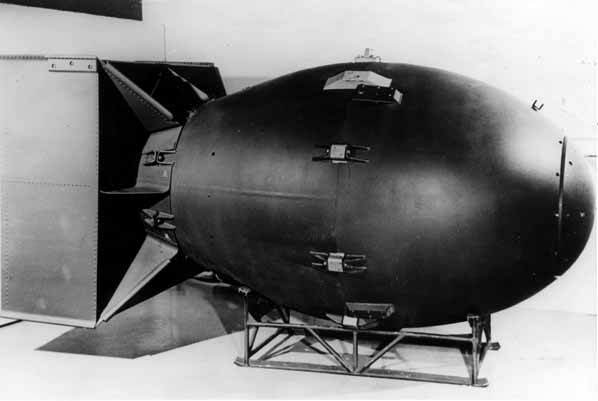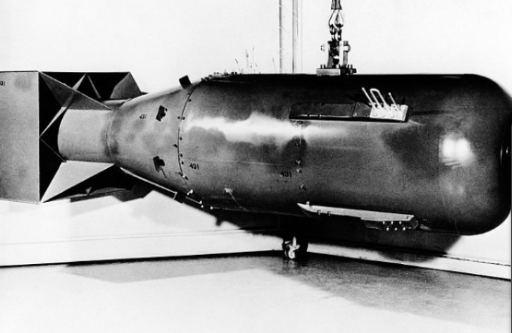The Creation of the Atomic Bomb:
Frontiers in Warfare, Civil Rights, and Science


The"Fat Man" bomb dropped by a U.S. Army Air Force B-29 bomber over Nagasaki, Japan - August 9, 1945 - Euronews
The "Little Boy" bomb on dropped by a U.S. Army Air Force B-29 bomber over Hiroshima, Japan - August 6, 1945 - Euronews
The development of atomic weapons affected science, technology, civil rights, warfare, politics, Japanese society, and environmental pollution for people worldwide. Expansion of nuclear research led to the first nuclear power plant and helped man first set foot on the moon. The advancements in workplace equality during the Manhattan Project furthered civil rights for underrepresented minorities. The ability to take millions of lives at the press of a button gave mankind a power more destructive than every other. The resulting Cold War unveiled the new world superpowers and introduced the world to a new type of warfare. Nuclear testing polluted the environment; the Limited Test Ban Treaty outlawed this, creating partial international unity. The decimation of Japan’s cities gave way to the reconstruction of its economy which still stands strong today. The creation of atomic weaponry has impacted society in a multitude of ways that can be seen to this day, and has the right to call itself one of the greatest frontiers in history.
Evan Robinson and Cecilia Wooldridge
Junior Division - Group Website
Student Generated words: 1199
Process Paper words: 494
Media Length: 2:30